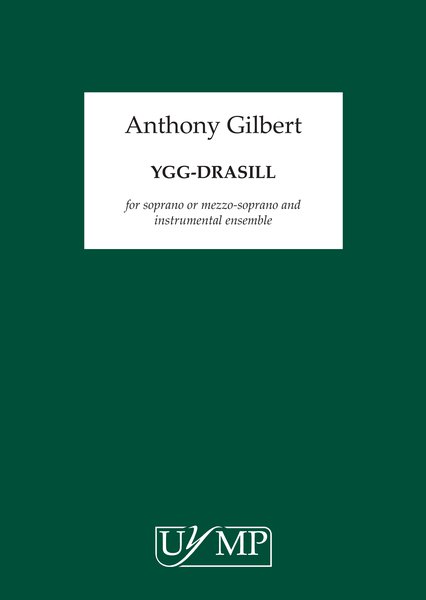This eleven-minute piece was written as a belated birthday-gift to Alison Cox, Head of Composition at the Purcell School, to be performed by her 'outreach' ensemble Impulse, who, with soprano Daisy Chute, gave the first performance, directed by Edward Longstaff, at Binham Priory, Norfolk on 14th July 2007 . The words are attributed to King Alfred, and are a reflection on the mythical Nordic ash tree, Ygg-drasill, a tree of life and death. They appear in Bulwer Lytton's historical novel Harold, which gives a detailed account of the Nordic and Norman invasions of Britain in 1066. It is cast in 14 variations on a mediaeval chant, a version of which the soprano sings at the outset and the clarinet concludes with. The piece's sub-title is 'variations against invasion'.
So oft the mild sea, By the Urdar-fount dwelling,
as grey glass, clear Day by day from the rill,
with south wind The Nornas besprinkle
becomes grimly troubled. * The Ash Ygg-Drasill.
When the Wolf-month, grim and still, The Hart bites the buds,
Heaps the snow-mass on the hill; And the snake gnaws the root
When, through white air, sharp and bitter, But the eagle all-seeing
Mocking sunbeams freeze and glitter; Keeps watch on the fruit.
When the ice-gems, bright and barbed
Deck the boughs the leaves had garbed, In the Iron-Wood rages
Then the measure shall be meted, The Weaver of Harm,
And the circle be completed. The giant Blood-drinker
Cerdic's race, the Thor-descended, Hag-born Managarm.
In the Monk-king's tomb be ended;
And no Saxon brow but thine A keel nears the shoal;
Wear the crown of Woden's line. From the slime and the mud
Crawl the newt and the adder,
The spawn of the flood.
O, dread is the tempter,
And fierce the control;
But conquer'd the evil,
If sound be the soul!**
*attributed to Alfred the Great
**E.G.A. Bulwer-Lytton, from the historical novel Harold (the words of the visionary, Hilda)


